Asphalt Installations Harrison Michigan
We Are Locally Owned
& Operated For 36 Years
Contact Us Today!
About Asphalt Installations
Introduction
Commercial property owners oftentimes confront the challenge of maintaining their structures and edifices to guarantee their longevity, functionality, and visual appeal. This includes infrastructural maintenance and installations with a significant focus on improving the properties’ exterior aesthetics like constructing or renovating parking lots, driveways, or walkways. A common solution lies in using asphalt. Asphalt installations are highly desirable due to its durability, cost-effectiveness, and simplicity in application. This detailed guide explores the vast world of asphalt installations, from the process, benefits, to essential maintenance practices.
Asphalt Driveway Resurfacing
Asphalt driveway resurfacing plays a crucial role in the lifespan of a driveway. It helps in restoring the worn-out surface, giving it a brand new look and feel. The resurfacing process involves removing the top layer of the existing asphalt and replacing it with a fresh one. It fixes minor cracks or potholes, thereby drastically improving the appearance of your commercial property and enhancing its longevity. Regular asphalt resurfacing helps to avoid pricey repairs in the future, providing an essential aspect of asphalt maintenance.
Asphalt Maintenance
Prolonging the life and quality of your asphalt installation involves regular and meticulous maintenance. Whether you’ve just installed your driveway or had it resurfaced, maintenance is key to keeping it in top-notch condition. Regular asphalt maintenance includes timely crack filling, sealcoating, and fixing potholes or any form of wear and tear. These practices not only help maintain the visual appeal of your property but also strengthen the resistance of the asphalt to water, weather conditions, and heavy traffic – extending its lifespan.
Asphalt Driveway Installation
Asphalt driveway installation is a popular choice among commercial property owners due to its numerous benefits. Durability, cost-effectiveness, ease of installation, and simple maintenance are among these appealing advantages. The installation process involves several stages from the preliminary excavation, grading, adding a sub-base, a binder layer, to finally a top layer of asphalt. Engaging professionals in the process ensures a high-quality, long-lasting, and appealing driveway.
Asphalt Installation overview
Undeniably, asphalt installation is an integral part of commercial property improvement. Not limited to driveways alone, it extends to parking lots, walkways, and other exterior property surfaces. The installation process calls for a comprehensive understanding of site preparation, appropriate materials, and the right technique. Armed with these, one can achieve a durable, aesthetic, and high-quality asphalt pavement. Moreover, the fast curing time of asphalt makes the installation a more convenient and quicker process compared to other popular materials such as concrete.
Benefits of Asphalt Sealcoating Services
Last but not least is the importance of asphalt sealcoating services. Sealcoating provides a layer of protection blockading the damaging effects of sun, rain and other elements from the asphalt underneath. This preventative maintenance is crucial for prolonging the life of the asphalt, enhancing its appearance, and reducing long-term repair costs. Sealcoating services ensure the longevity of your investment, by slowing down oxidation, preventing water penetration, and resisting the damage caused by chemicals or other corrosive substances.
Conclusion
In conclusion, asphalt installation serves as a sustainable and visually appealing solution for commercial properties. Asphalt driveway resurfacing and consistent asphalt maintenance can greatly extend the life and aesthetic appeal of these installations. Furthermore, professional asphalt sealcoating services play a crucial role in mitigating damage caused by harsh environmental factors. Evidently, understanding these procedures and benefits can equip commercial property owners to make well-informed decisions about their property improvements.
All these advantages can make asphalt the perfect solution for your commercial property’s exterior needs. If you require high-quality asphalt driveway installation, resurfacing, or maintenance services, don’t hesitate to contact the experts in your city or region. They are equipped with the necessary skills, experience, and resources to deliver excellent results that exceed your expectations.
Contact Us Today for a FREE
Asphalt Installation Quote
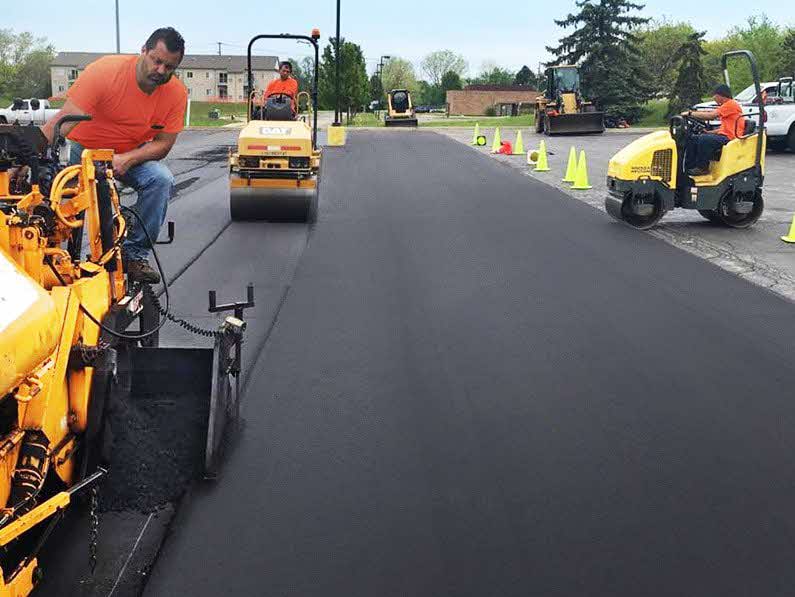
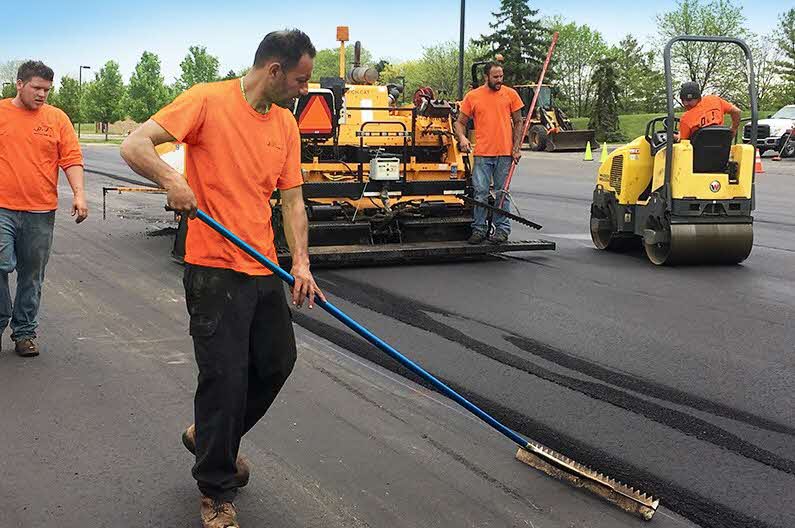
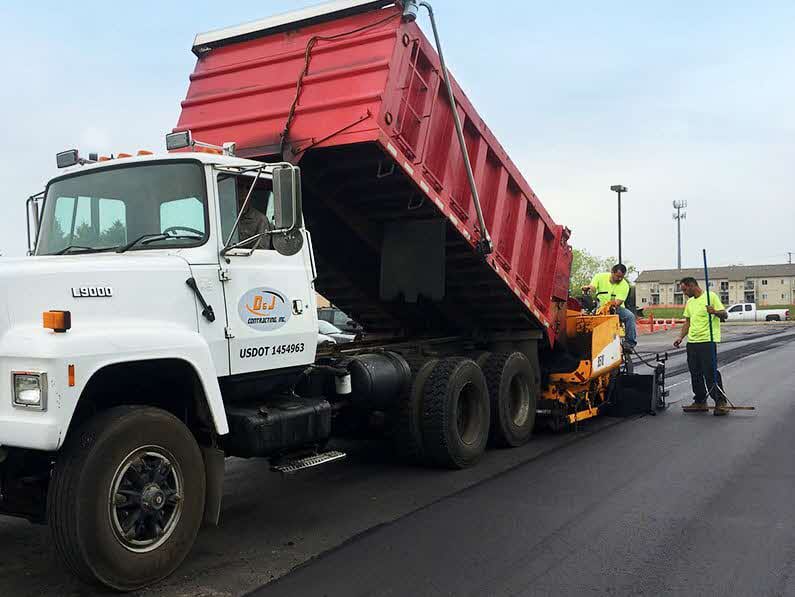
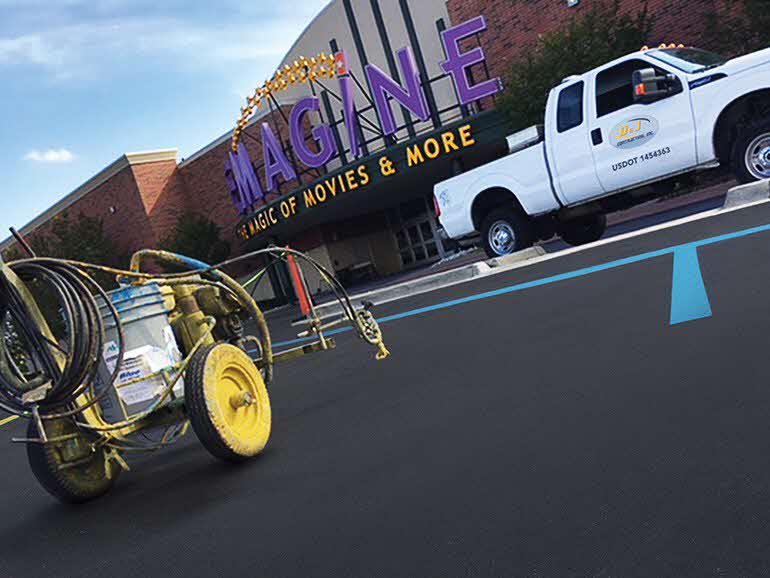
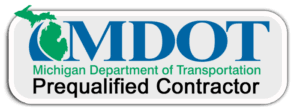

About Harrison, Michigan
History
Harrison was first designated as the new centralized location of the county seat of Clare County in 1877. It would become a replacement for Farwell, which was the first county seat when Clare County was formally organized in 1871. The Flint and Pere Marquette Railroad platted the village in 1879 and set aside property for a new county government after the previous courthouse in Farwell burned down. The Harrison post office opened on January 27, 1880 and was named after former president William Henry Harrison. The new community incorporated as a village in 1885 and later as a city in 1891.
Geography
According to the U.S. Census Bureau, the city has a total area of 4.03 square miles (10.44 km), of which 3.71 square miles (9.61 km2) is land and 0.31 square miles (0.80 km) is water.
The city’s motto is “20 Lakes in 20 Minutes” due its proximity to numerous lakes. Budd Lake is mostly located within the city limits, while the northern coastline extends into Hayes Township. The only other lake within the city limits is Little Long Lake, which also extends into Hayes Township.
Major highways
 US 127 runs south–north just outside the eastern border of the city.
US 127 runs south–north just outside the eastern border of the city.
 Bus. US 127 is a business route of US 127 that runs through the center of the city.
Bus. US 127 is a business route of US 127 that runs through the center of the city. M-61 is a state highway that enters the west-central part of the city and then runs concurrently with Bus. US 127.
M-61 is a state highway that enters the west-central part of the city and then runs concurrently with Bus. US 127.
Demographics
| Census | Pop. | Note | %± |
|---|---|---|---|
| 1880 | 129 | — | |
| 1890 | 752 | 482.9% | |
| 1900 | 647 | −14.0% | |
| 1910 | 543 | −16.1% | |
| 1920 | 399 | −26.5% | |
| 1930 | 458 | 14.8% | |
| 1940 | 727 | 58.7% | |
| 1950 | 884 | 21.6% | |
| 1960 | 1,072 | 21.3% | |
| 1970 | 1,460 | 36.2% | |
| 1980 | 1,700 | 16.4% | |
| 1990 | 1,835 | 7.9% | |
| 2000 | 2,108 | 14.9% | |
| 2010 | 2,114 | 0.3% | |
| 2020 | 2,150 | 1.7% | |
| U.S. Decennial Census | |||
2010 census
As of the census of 2010, there were 2,114 people, 913 households, and 524 families residing in the city. The population density was 568.3 inhabitants per square mile (219.4/km2). There were 1,306 housing units at an average density of 351.1 per square mile (135.6/km). The racial makeup of the city was 93.7% White, 1.7% African American, 0.8% Native American, 0.5% Asian, 0.2% from other races, and 3.1% from two or more races. Hispanic or Latino of any race were 2.5% of the population.
There were 913 households, of which 26.9% had children under the age of 18 living with them, 37.0% were married couples living together, 15.9% had a female householder with no husband present, 4.5% had a male householder with no wife present, and 42.6% were non-families. 37.2% of all households were made up of individuals, and 17.5% had someone living alone who was 65 years of age or older. The average household size was 2.18 and the average family size was 2.79.
The median age in the city was 42.1 years. 21% of residents were under the age of 18; 10.8% were between the ages of 18 and 24; 22.4% were from 25 to 44; 27.4% were from 45 to 64; and 18.4% were 65 years of age or older. The gender makeup of the city was 49.1% male and 50.9% female.
2000 census
As of the census of 2000, there were 2,108 people, 857 households, and 526 families residing in the city. The population density was 563.3 inhabitants per square mile (217.5/km2). There were 1,187 housing units at an average density of 317.2 per square mile (122.5/km). The racial makeup of the city was 94.78% White, 2.04% African American, 0.62% Native American, 0.71% Asian, 0.43% from other races, and 1.42% from two or more races. Hispanic or Latino of any race were 1.47% of the population.
There were 857 households, out of which 26.6% had children under the age of 18 living with them, 46.0% were married couples living together, 12.5% had a female householder with no husband present, and 38.6% were non-families. 35.2% of all households were made up of individuals, and 18.2% had someone living alone who was 65 years of age or older. The average household size was 2.24 and the average family size was 2.83.
In the city, the population was spread out, with 22.3% under the age of 18, 9.7% from 18 to 24, 25.6% from 25 to 44, 24.7% from 45 to 64, and 17.7% who were 65 years of age or older. The median age was 39 years. For every 100 females, there were 93.6 males. For every 100 females age 18 and over, there were 92.5 males.
The median income for a household in the city was $26,392, and the median income for a family was $35,179. Males had a median income of $32,500 versus $20,909 for females. The per capita income for the city was $15,443. About 14.1% of families and 18.5% of the population were below the poverty line, including 20.8% of those under age 18 and 15.1% of those age 65 or over.
Education
The city of Harrison is served entirely by Harrison Community Schools, which is centrally located within the city and serves a large part of the northern portion of the county.
Mid Michigan Community College has a Harrison campus located just to the southeast in Hatton Township.
Contact Us Today for a FREE
Asphalt Installation Quote
Our Asphalt Installation services are available in Harrison as well as all of Macomb County.
Our dedicated team at D&J Contracting Inc is at-the-ready to provide you with great customer service and first class Asphalt Installation services. Reach out to us at (586) 954-0008 to discuss your Asphalt Installation needs today!